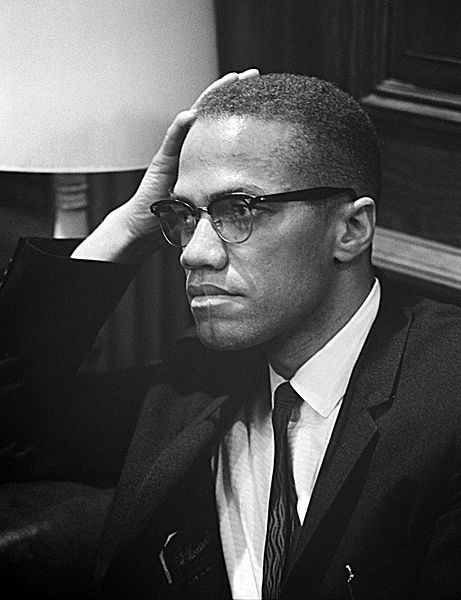 Nearly 47 years ago in Detroit, Michigan, Malcolm X passionately delivered a speech titled, The Ballot or the Bullet. In this speech he described the gravity of the African-American struggle for civil rights and more broadly, America's struggle for a democracy that lived up to the ideals upon which this nation was founded.
Nearly 47 years ago in Detroit, Michigan, Malcolm X passionately delivered a speech titled, The Ballot or the Bullet. In this speech he described the gravity of the African-American struggle for civil rights and more broadly, America's struggle for a democracy that lived up to the ideals upon which this nation was founded.
At the time, many African-American citizens were living in a state of persistent oppression, frequently at the hands of the very same government organs and officials that simultaneously championed the quintessential American values of freedom of speech and freedom of assembly. When Malcolm X delivered this speech, the most fundamental right in a democratic society was systematically denied to millions of American citizens: the right to express oneself and shape society at the ballot box. The following year, Malcolm X was killed by an assassin's bullet. Next Friday will mark the 56th anniversary of his untimely death.
Malcolm X characterized that moment in time, 1964, as one in which our nation had an opportunity, a choice to make that would determine the fate of American society. It could choose a future shaped by the ballot, or it could choose a future determined by the bullet. Choosing the former would mean that the political, social and economic enfranchisement of African-Americans and other minorities would be achieved peacefully through electoral processes, producing for all Americans, the democratic society promised in the U.S. Constitution. However, choosing the latter would mean that achieving those same ends would occur through what Malcolm X believed to be the only viable alternative, violence, a tried and true American pastime. He knew well that should America choose the bullet, that the violence would not only be carried out by citizens longing for freedom and the equal protection of the law, but that it would also be perpetrated by a government resistant to its citizens' demands for change.
Time was running out on the ballot, and Malcolm X saw the bullet as imminent. But the choice was to be made collectively by all Americans. Fortunately, Congress responded to the will of the people and by passing the landmark Civil Rights Act and the Voting Rights Act soon thereafter, wisely chose the path of the ballot.
Today, like in 1964, the United States faces a similar choice between the ballot and the bullet. Except that now, the ballots in question will not be cast in American elections, rather in elections abroad. And the presage of ringing bullets through the streets will not come to be in American cities; instead those bullets will sound off in the avenues of foreign capitals.
The bullet: The U.S. can choose to continue underwriting autocratic and repressive regimes which routinely employ the might of their security apparatuses to silence opposition -- like in Saudi Arabia, Jordan, Bahrain and Yemen among others. In the short term, supporting these regimes narrowly serves U.S. interests by providing an illusory sense of security and stability that time again has proven only ephemeral. In the Middle East for example, the prospect of regional stability, however tenuous, has come at a very high price -- $1.3 billion in annual aid to Egypt's military alone, and we see what has come of the military backed Mubarak regime. Though considerably more costly to the U.S., perhaps even incalculable, is the less tangible steady degradation of American influence resulting from the perennial policy choice of providing cover and maintaining undemocratic and repressive regimes. The bullet is untenable and the cost of hypocrisy too great.
The ballot: U.S. policymakers can chose to support "people power" and the democratic aspirations of those fighting to create truly democratic societies, wherever and whenever that struggle happens to take place. While our constitution may not apply extra-territorially, our democratic ideals have no such boundaries. The U.S., if true to the rhetoric that it espouses, must choose to support and empower the millions of disenchanted individuals around the world struggling to free themselves from the grip of autocratic and repressive regimes; some of these regimes have been maintained by U.S. dollars and policies in exchange for the precarious "stability" they provide at the expense of their citizens' dignity and freedom. The ballot is the only option which can guarantee sustainable security.
Malcolm X called 1964 the year of "the ballot or the bullet." Today, the U.S. must again choose between the ballot and the bullet. If the U.S, in conducting its foreign policy, fails to pursue and facilitate the former as events in Egypt and our own American experience demonstrate, it is only a matter of time before the bullet forces the calls for freedom and democracy to be answered. In the end, our own security, stability and peace will ultimately depend on ballots cast abroad. It is time the U.S. chooses to irreversibly pursue policies which affirm our national values and support people in their pursuit of the freedoms we in America too often take for granted.